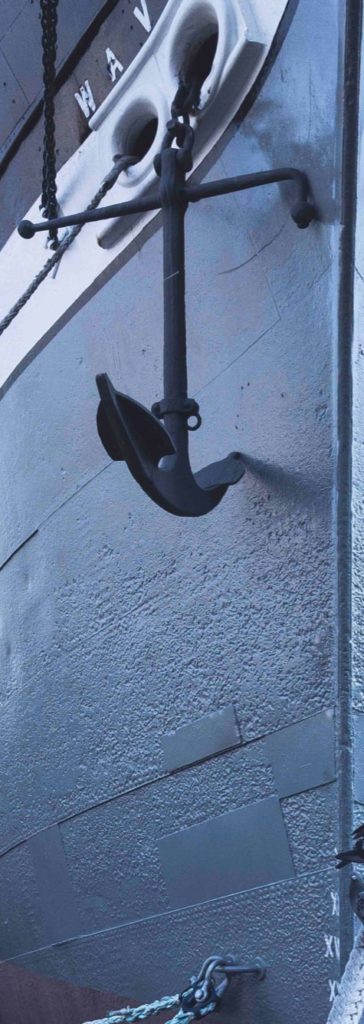Boonk Van Leeuwen
Boonk Van Leeuwen Advocaten
Lichtenauerlaan 50
3062 ME Rotterdam
Boonk Van Leeuwen Advocaten
Postbus 29215
3001 GE Rotterdam
Neem contact op
Telefoon: +31 10 - 2811 811
Fax: +31 10 - 2133 111
The long arm of the US´ Ministry of Finance: choose your currency carefully
Geopolitical situations can have far reaching consequences for international trade. For companies trading with partners in countries whose position can be considered as ´sensitive´ on the geopolitical stage, a careful and diligent review of various sanctions list is an absolute must. Especially the sanctions list from the United States of America (“US”).
A judgment from the Court of Appeal in Amsterdam is a good example why this is so important (6 October 2020, ECLI:NL:GHAMS:2020:2621). This is what happened.
The Swiss-based company Staroil (currently in liquidation) allegedly traded with some Syrian parties against whom the US has imposed sanctions. The US Office of Foreign Assets Control (“OFAC”) which is part of the US ministry of Finance and entrusted with the execution of the US’ sanction policies, keeps a list of parties breaching US´ sanctions. Because of their business in Syria, Staroil was placed on this OFAC-list and qualified as a Foreign Sanctions Evader and Specially Designated National; both labels you really want to avoid.
Staroil has a US Dollar account at the ING Bank (“ING”) in the Netherlands. As a consequence of Staroil’s enlisting on the infamous OFAC-list, ING froze Staroil’s US Dollar account and placed the funds, roughly USD 2.1 million, in a suspense account. All payment and currency transactions were blocked and remained blocked.
In the Netherlands, Staroil commences legal proceedings before the District Court in Amsterdam against ING. On the basis of articles 6:122/123 of the Civil Code, Staroil primarily demands payment of roughly USD 2,2 plus interests and costs, subsidiary transferring the amount in the suspense account to the escrow account from Staroils’ lawyer and more subsisidiary, tranfer of the amount back to Staroils US Dollar account and unblock it. The District Court rejected the claim; Staroil appeals.
ING is not willing to release the funds as this would expose her to high penalties from the US government and being hit by US sanctions herself. Therefore, ING invokes force majeure to justify its refusal.
Here is why the ING does not want to release the funds even though Staroil may have been wrongly included on the list (NB Staroil had commenced proceedings in the US to be removed from the OFAC-list).
Transactions through Dollar accounts fall within the sphere of influence of the US even if the bank with the Dollar account is not located on US territory. The corresponding bank in the US that needs to execute the transaction for ING is legally obliged to block any transaction if the holder of the bank account is on the OFAC-list.
Several experts were consulted by the parties to establish the risk for ING if it was obliged to release the funds pursuant to a condemning judgement from a Dutch Court. The experts were unsure of the exact consequences for ING.
In case of adequate explanation to OFAC why the funds were released to Staroil, the risks for ING supposedly would be decreased, according to one of the experts. However, the US authorities act unilaterally, arbitrarily and uncontrollably in applying the US sanctions rules despite its policy to take into account an entity’s obligations based on law applicable outside the US, Staroil admitted. In view of the above, it would be very uncertain if a Dutch judgement is sufficient explanation for OFAC.
Therefore, the Court of Appeal rejects Staroil’s request and follows the force majeure argument from ING; Staroil’s monies remain in the suspense account.
It is important to realize that you fall under the sphere and influence from the US when using a Dollar account and the consequences this can have for the company.
It is also important to note that the US sanctions list and the one from for instance the European Union, are different. Iran is a good example. With the withdrawal of the US in 2018 from the Joint Comprehensive Plan of Action, better known as the ‘Nuclear Deal’ or ‘Iran Deal’, the US reimposed sanctions against Iran which aim to have extraterritorial effect. In that same year, the European Commission, installed EU delegated regulation 2018/1100 (6 June 2018) which basically forbids companies to follow the stricter sanction regime from the US. Consequently, a Catch 22 situation is created for companies trading with Iran located in the European Union and holding Dollar accounts at foreign banks.
Concluding: make sure you choose your currency wisely.
